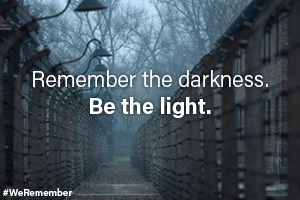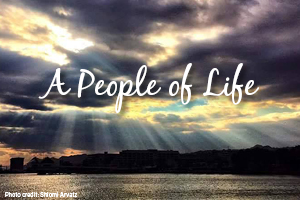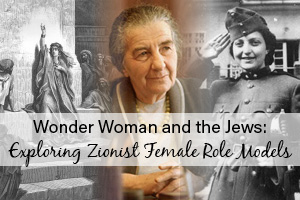Song of Defiance | Parashat Beshalach
And the Children of Israel departed defiantly." (14:8)
After decades of slavery and oppression, Am Yisrael tastes freedom. As they take their first steps toward the harsh desert, they face a future of hope, identity, faith; a future of Torah and Eretz Yisrael. With the cavalry of Egyptian soldiers on their heels, they reach the edge of the sea. Suddenly realizing they were trapped, their hearts filled with a double fear: on one hand, having to face their oppressors yet again, on the other, the unknown reality of the desert. For some, Egypt still embodied the place of life, while desert conjured up visions of death. "Better to serve Egypt than to die in the wilderness!" (14:12)
There is something powerful about the Jewish desire to live, and the willingness to compromise comfort and security for the sake of that life. And yet, just when their despair is at its peak, Bnei Yisrael watched as their pursuers were swallowed up by the sea. The miracle of the splitting of Yam Suf was yet another sign that God was watching over them, protecting them, and encouraging them in their pursuit of freedom. The feelings of relief overwhelmed them and they burst into song, led by Miriam, the sister of Moses. Their insecurity, shame, and fears were transformed into exhilarating prayers of thanks, and the people celebrated the next step to the fulfillment of their destiny as a nation.
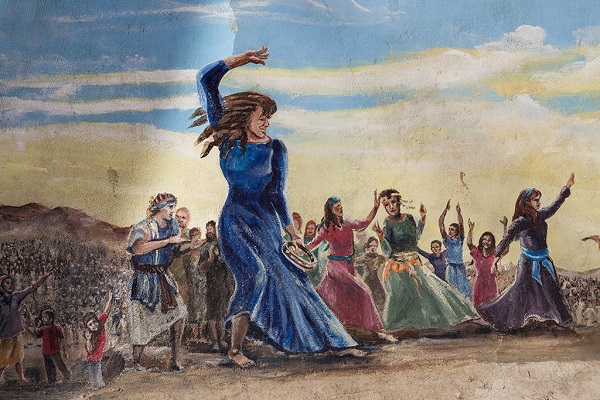
Miriam the Prophetess By Ze'ev Barkan distributed under a CC BY 2.0 license
The emergence from the darkness of Egypt propelled each member of the tribe to seek out the meaning in life: What was their purpose? Why and how could they dream of a future in a material world where slavery, torture, persecution, and murder were commonplace? These questions still plague us as we witness the rise of hatred and violence in our society in ways we are unable to control. And so we turn to our ancient texts and traditions to decipher the options we have for living a meaningful and fulfilling life as Jews and as human beings in a world seemingly determined once again to demonize and destroy us.
Our sages have inferred that the point of exile and the burden of doubt is to lead us to our love of our fellow man, of ourselves, and of God, encouraging us to continuously affirm our faith. “And the Lord went before them by day in a pillar of cloud to cause it to lead them on the way and at night in a pillar of fire to give them light, [they thus could] travel day and night.” (Exodus 13:21). The light emanating from the pillar, which gives us guidance even still today, lifted the souls of the children of Israel, empowered by the embrace of Hashem’s security as they faced the extreme circumstances of this monumental journey from slavery to freedom.
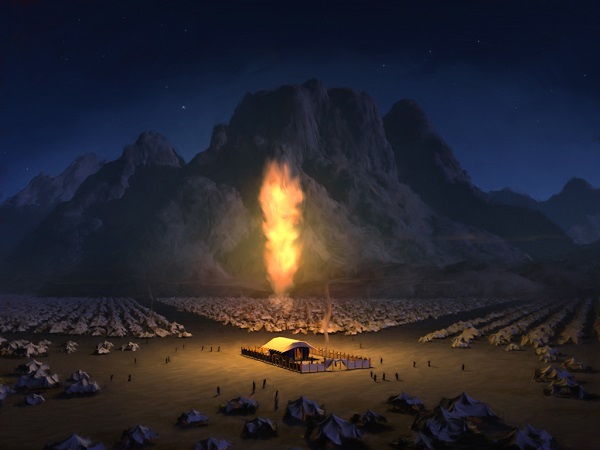
Unexpectedly, the people of Israel faced a new enemy. Attacked by the Amalekites, a nomadic group living in the desert, Joshua led the Israelites into a battle fought and won in what would become a historical affirmation of Amalek as the eternal enemy of the Jews, and of God.
Our sages outlined two forms of response to this enemy: war, and remembrance. The first is deemed as the unwanted consequence of having to defend ourselves, our rights, our historic destiny. No one wants war, yet Israel and all the people of Israel in the world have been forced into the position again and again by those who seek to destroy us.
The second is doubly-emphasized: to remember, and not to forget. Then the Lord said to Moses, ‘Write this on a scroll as something to be remembered and make sure that Joshua hears it, because I will completely blot out the name of Amalek from under heaven.’ Moses built an altar and called it The Lord is my Banner. He said, ‘The hand is on the Lord’s throne. The Lord will be at war with Amalek for all generations.’ (Ex. 17:14-16)
Memory is a defining element of Jewish identity - from our ancient past, to our ancestral connections, to the suffering of our ancestors in the many pogroms and persecutions throughout history. We remember being slaves in Egypt, we remember the Holocaust, we remember ancient Israel, Zion, Jerusalem.
And yet we are instructed to remember Amalek in a specific way:
Remember what the Amalekites did to you along the way when you came out of Egypt. When you were weary and worn out, they met you on your journey and attacked all who were lagging behind; they had no fear of God … You shall blot out the name of Amalek from under heaven. Do not forget! (Deut. 25:17-19).
Why this specific concern for ONE enemy of Israel when there are so many others, including the Egyptians who oppressed, enslaved and murdered the Jews over a long period? Shouldn’t they be remembered as the symbol of evil? Instead, we are told “Do not abhor an Egyptian, because you were a stranger in his land” (Deut. 23:8). We are commanded not to hate Egypt, but never to forget Amalek. What are the implications of this distinction on us today?
By dividing the enemies of Israel as well as the options for response in this way, Judaism marks a clear distinction between an ancient enemy who no longer exists, and the evil that enemy embodied, which can break out again at any time in any place. If we harbor endless hate for Egypt, or any of the numerous oppressors of Israel and the Jewish people, we ourselves can become fueled by that hatred - a very dangerous reality that we contend with even today.
Yet when hate depends on a specific cause, it potentially ends once the cause disappears. Causeless, baseless hate, however, lasts forever. And that is the ultimate danger of the Jew-hatred that permeates human thought and behavior, generation after generation: its cause is the elimination of the Jew.
However, the war between the Israelites and Amalek represent the eternal battle between the forces of good and evil, and a confrontation between elements of the self that are central to our Jewish faith and identity - all of which are relevant to the circumstances presenting themselves in the world today. Our Sages relate Amalek to doubt and uncertainty, which we must vanquish from our connection and relationship with God, and also in our individual and collective experience with our fellow man in the material world.
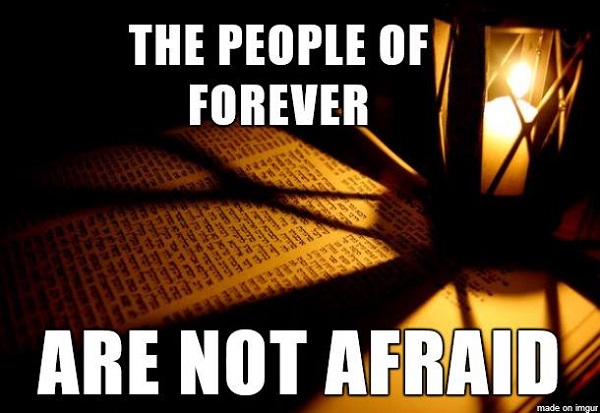
The Jew-hatred growing today is cause for comparison. On what is it based? The distinction of the Jew, embodied by the modern state of Israel as its physical and tangible symbol and manifestation of the same hated elements imposed on Jews throughout history. What is its purpose? The destruction of Israel and the elimination of Jewish influence and power in the global community, with only those willing to bury or deny the uniqueness, distinction and value of being a Jew as “acceptable.”
Following the Enlightenment and emancipation of the Jews living in the diaspora, many believed that as long as we conformed to the social norms, assimilated, acculturated, and accepted by the general population as “equals,” that collective evil would remain as extinct as the Amalekites. However, even with that pattern of adaptation, Jewish rights, faith, and identity were and continue to be embattled. The many who find our resilience and strength, our commitment to our history, traditions, and faith, an affront to their own sense of self, continue to place Israel and the Jewish people at war - not only with the unidentifiable enemy but also with ourselves.
The transformation today of lies into supposed truths makes our challenge all that much greater. Even the most rational actors understand that the pursuit of an interest entirely disconnected from the source - of ourselves, of our history, our identity as Jews - has the potential to become self-destructive. There are some who cooperate with the forces of evil, others who are determined to defeat it. But perhaps it is time that we depart defiantly from the same patterns of response that we have been acting out for generations since that fateful song at the sea.
Perhaps now, as we read of the defiance and courage of the journey of our ancestors in this week’s parsha, we can feel empowered anew to outline and define the distinctions between our enemies: those who we should not hate, and those whose names should be blotted out forever.
Perhaps together we can find the strength to defeat the BDSers, SJP, Jewish Voice for Peace, IfNotNow, JStreeters, Neturei Karta, and general antisemitic venom by banding together and, once again, sing in defiance of their hatred and be stronger together in our courage, our resolve, our pride just as every generation of Bnei Yisrael before us.
Join us as a Virtual Citizen of Israel, and join Am Yisrael in remembering, celebrating and protecting our rights as a nation - in our country and in our hearts and homes, everywhere in the world.
FOOD FOR THOUGHT:
- How can we differentiate between modern day “Egypt” and “Amalek”?
- What does the idea of singing in defiance of hatred have to do with the Israeli method of living beyond terror?
- God saved the Children of Israel drowning Pharoah’s army in the Red Sea. The battle against Amalek was actively fought, without visible miraculous intervention from God although we know through the description of Moses during the battle that there was always a connection between the Children of Israel and God - as long as Moses held up his hands, the Children of Israel were winning, but whenever he lowered his hands, the Amalekites began winning.
- What does this teach us about our personal responsibility in fighting our enemies?
- What does this teach us about the necessity to remember God when fighting those who wish to destroy us?
Recommended for you:
STAY CONNECTED NO MATTER WHERE YOU LIVE
Share your love of Israel as a Virtual Citizen of Israel today!
About the Author



